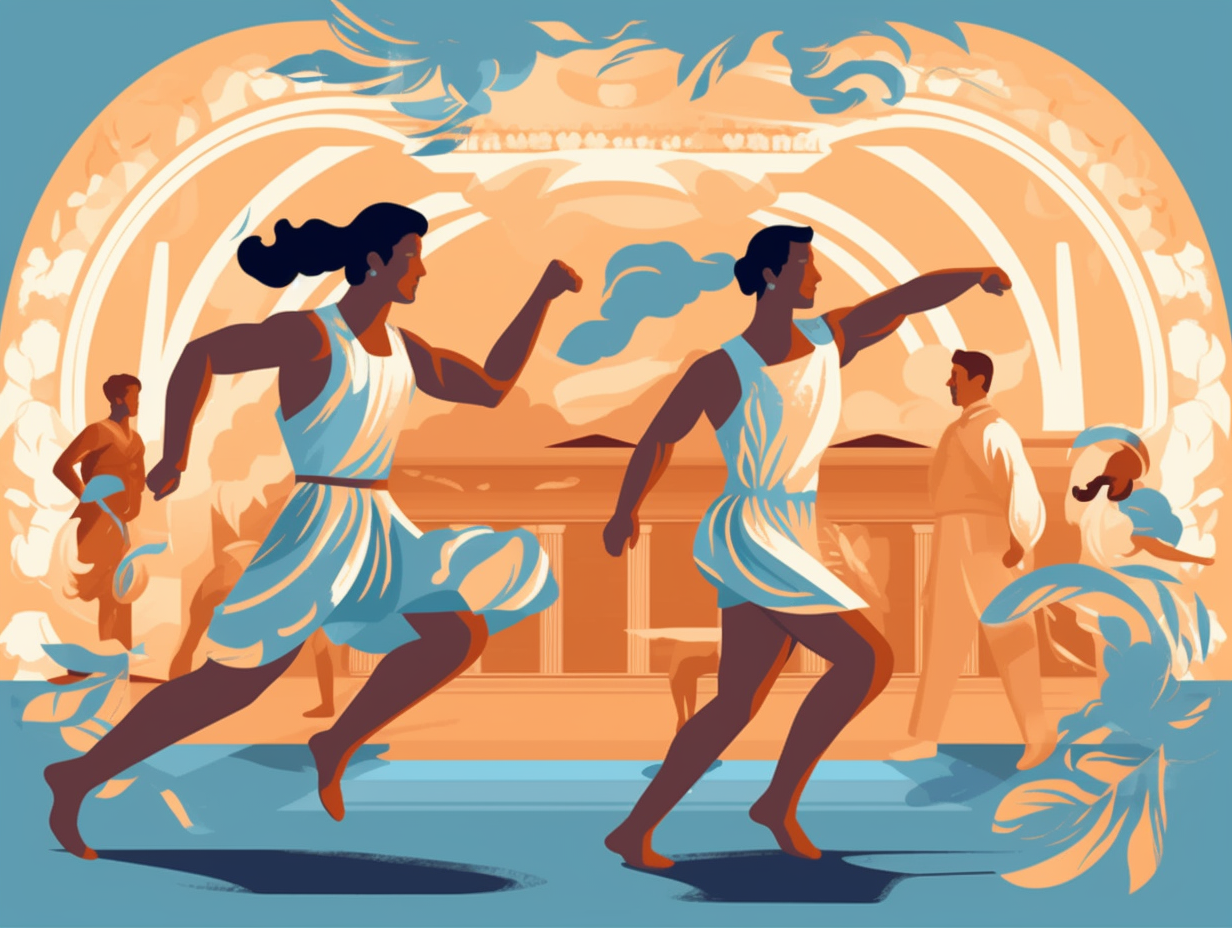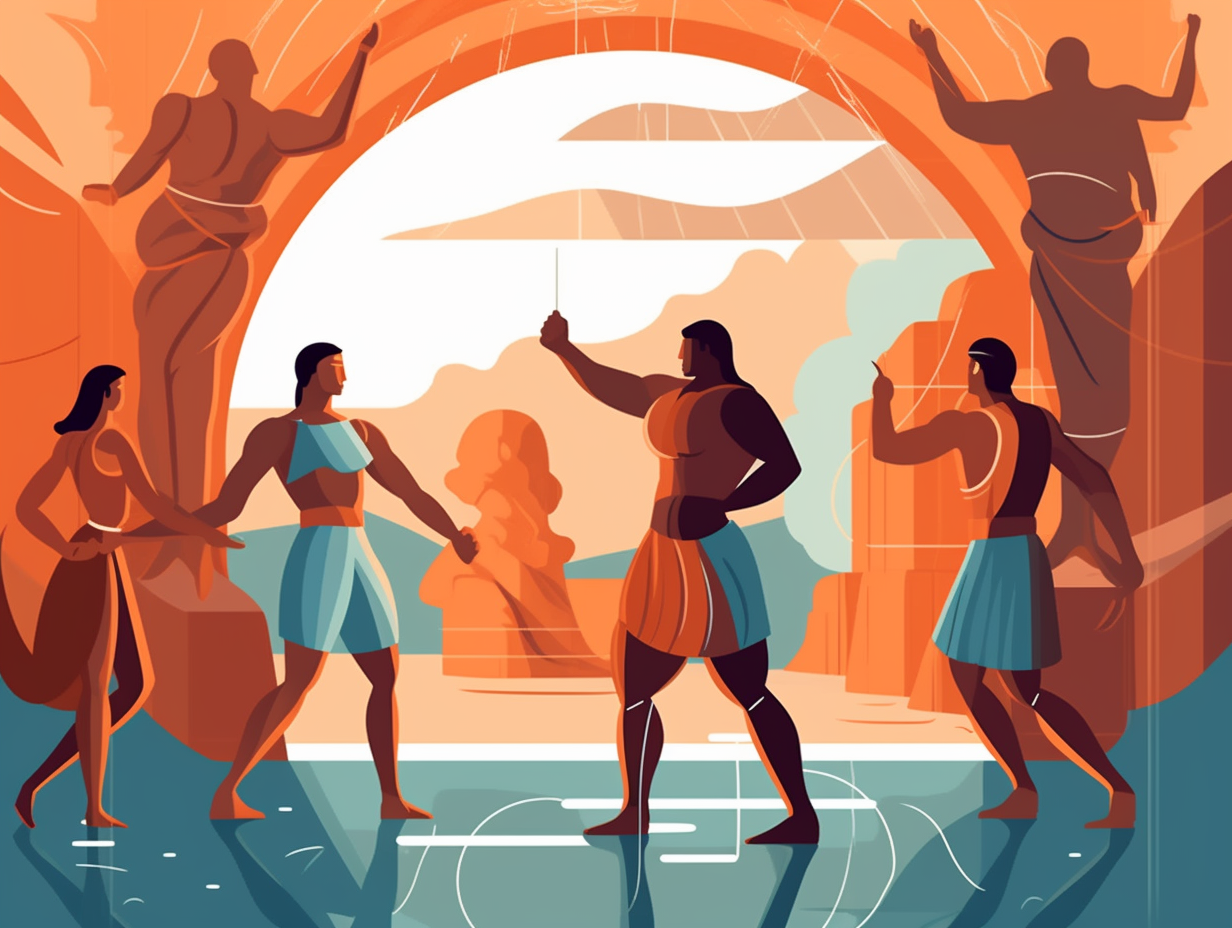Unlock the Glory: Top 10 Fun Facts About the Ancient Greece Olympics

1. Ancient Olympic Luxuries
Olympic FOMO isn't a modern phenomenon: even the ancient Greeks coveted that sweet taste of gold without breaking a sweat. *Cue torch relay* Oh, wait – that idea was actually hijacked from the 1936 Nazis Olympics! : It turns out the original Greek games were simply footraces held in honor of Zeus, starting in 776 B.C., and winners were bestowed not only a fancy olive leaf crown, but also a cool $100,000 USD (in modern currency), eternal fame, and their likeness captured in statues or soulful ballads.
Source => suu.edu
2. Walk of Shame Monuments
Who needs Zeus when you've got a walk of shame?: In ancient Greece, Olympic athletes caught cheating were heavily fined, and those fines were used to erect monuments that honored the athlete's dishonesty, lining the pathways leading to the stadiums as a public reminder of their sneaky ways.
Source => smithsonianmag.com

Did you know the world's oldest submerged city, Pavlopetri, lies off the coast of Greece? This 5,000-year-old "Ancient Greek Waterpark" calls for a mind-blowing deep-sea exploration. Time to grab your scuba gear!
=> Fun Facts about Greece
3. Ladies' Night for Unmarried Women
In ancient Greece, the Olympics were kind of like an old-school "ladies' night" – at least if you were an unmarried woman: Unmarried women could not only attend the games, but also enjoyed a privileged position near the Stadium altar, while married women were strictly forbidden from attending or participating. The priestess of Demeter, the goddess of fertility, also scored VIP seating during the events.
Source => olympics.com
4. Clothing-Free Competitions
When ancient Greek Olympians said, "let's get down to business," they truly meant it – in their birthday suits! These bare-naked warriors made clothing an afterthought by going au naturel to the max: During the Ancient Greek Olympics, athletes competed completely nude, as they believed clothes restricted their movement and flexibility, especially in combat sports like wrestling and pankration. They even amped up the difficulty by slathering themselves in oil, making it an impossible task for opponents to grab or hold onto them.
Source => metmuseum.org

5. Long-Distance Boredom Race
In ancient Greece, even the Olympics had a marathon of their own, testing athletes' endurance as much as their ability to avoid getting bored: meet the dolichos, a long-distance running event that ranged from a modest 1,200 meters to a whooping 7,200 meters, battling exhaustion and maintaining speed as they circled the stadion track for up to 24 laps. It wasn't all about speed, but survival of the fastest!
Source => ancientolympics.arts.kuleuven.be
6. Athletes' Wine and Dessert Control
Before you "whine" about your restrictive diet, imagine being an ancient Greek Olympian with a major sweet(water) tooth: according to philosopher Epictetus, these star athletes were encouraged to avoid desserts and cold water, with wine consumption strictly set to "sip, don't gulp" in order to preserve their superb physical condition.
Source => academic.oup.com
7. Doping since Ancient Times
Step aside, modern-day athletes with your protein shakes and supplements: Ancient Greek Olympians were no strangers to getting a competitive edge through questionable means. Hailing from the time of Zeus' wild toga parties, these Herculean athletes dabbled in potions, popping animal hearts, testicles, mushrooms, and even hallucinogens to enhance their performance: Of course, if caught red-handed, they faced harsh punishments like getting banned from competitions and having their names etched into stone pedestals for all to see – an ancient Olympic version of the Hall of Shame! So don't be fooled, doping and cheating scandals have been a time-tested Olympic tradition since the days of olive wreath crowns.
Source => greekreporter.com
8. Brutal Pankration Fights
If ancient Greek athletes had a motto, it might have been "all's fair in love, war, and Pankration": this extreme sport of the original Olympic Games was a no-holds-barred mix of wrestling and boxing that allowed combatants to punch, choke, and break their opponent's limbs like a toddler snapping twigs, with only biting and gouging deemed out of bounds. Despite the potential for gore, the Greeks had a knack for sports medicine and knew when to cry uncle, so fighters lived to compete another day.
Source => olympics.com
9. Racing in 50-pound Armor
Talk about a truly "bare" necessity: In ancient Greece's early Olympic games, male athletes often competed in the nude, although later events like the hoplitodromos had athletes running in full armor weighing around 50 pounds.
Source => lochgarry.wordpress.com

10. The Great Nude Clean-up
If Herculean athletes left their togas at home, they’d fit right in at the ancient Greek Olympics: Competitors showcased their birthday suits and au naturel physiques, competing stark naked to honor the natural human form and avoid distractions, slathering olive oil all over their bodies and then using a strigil to scrape it off as a post-event cleansing ritual.
Source => en.wikipedia.org
Related Fun Facts




















